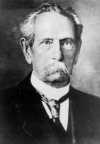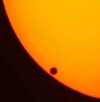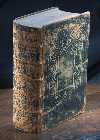 The German-Japanese Anti-Comintern Pact was one of a series of agreements leading to the formation of the Axis Powers. Ostensibly directed against the Comintern, an association of national communist parties that degenerated under Stalin into an instrument of Soviet politics, the pact contained a secret agreement stating that if either signatory power went to war with the USSR, the other would maintain a benevolent neutrality. What other countries eventually signed the treaty? Discuss
The German-Japanese Anti-Comintern Pact was one of a series of agreements leading to the formation of the Axis Powers. Ostensibly directed against the Comintern, an association of national communist parties that degenerated under Stalin into an instrument of Soviet politics, the pact contained a secret agreement stating that if either signatory power went to war with the USSR, the other would maintain a benevolent neutrality. What other countries eventually signed the treaty? Discuss
Source: The Free Dictionary

 Benz was a German engineer credited with building the first automobile powered by an internal-combustion engine. His Motorwagen, the first commercial automobile, was first driven in 1885 and patented the next year. It had three wheels, an electric ignition, differential gears, and was water-cooled. Benz’s familiarity with and fondness for bicycles inspired the design of his “horseless carriage.” According to legend, who took one of Benz’s early models on the first long-distance road trip?
Benz was a German engineer credited with building the first automobile powered by an internal-combustion engine. His Motorwagen, the first commercial automobile, was first driven in 1885 and patented the next year. It had three wheels, an electric ignition, differential gears, and was water-cooled. Benz’s familiarity with and fondness for bicycles inspired the design of his “horseless carriage.” According to legend, who took one of Benz’s early models on the first long-distance road trip?  In 1951, the British Royal Navy ship HMS Challenger II surveyed the Challenger Deep trench of the Pacific Ocean, located between Indonesia and Japan, establishing it as the deepest known point of any ocean on Earth. Less than a decade later, a US Navy deep-sea diving submersible descended to the trench floor. There, the crew observed small sole and flounder and noted that the floor consisted of diatomaceous ooze. What is the maximum depth surveyed at the Challenger Deep?
In 1951, the British Royal Navy ship HMS Challenger II surveyed the Challenger Deep trench of the Pacific Ocean, located between Indonesia and Japan, establishing it as the deepest known point of any ocean on Earth. Less than a decade later, a US Navy deep-sea diving submersible descended to the trench floor. There, the crew observed small sole and flounder and noted that the floor consisted of diatomaceous ooze. What is the maximum depth surveyed at the Challenger Deep?  A transit of Venus occurs when the planet passes between the Sun and Earth, obscuring a small portion of the Sun’s disk. In 1639, English astronomer Jeremiah Horrocks made the first observation of such a transit by using a telescope to focus the Sun’s image onto a white screen and watching as Venus’s shadow, appearing as a small black disk, passed across it. These observations allowed him to estimate the distance from Earth to the Sun more accurately than ever before. How close was his estimate?
A transit of Venus occurs when the planet passes between the Sun and Earth, obscuring a small portion of the Sun’s disk. In 1639, English astronomer Jeremiah Horrocks made the first observation of such a transit by using a telescope to focus the Sun’s image onto a white screen and watching as Venus’s shadow, appearing as a small black disk, passed across it. These observations allowed him to estimate the distance from Earth to the Sun more accurately than ever before. How close was his estimate?  A week devoted to encouraging people to read the
A week devoted to encouraging people to read the  Spinoza was a Dutch Jewish philosopher whose early interest in new scientific and philosophical ideas led to his expulsion from the synagogue in 1656. His philosophy represents a development of and reaction to the thought of René Descartes, and many of his most striking doctrines are solutions to difficulties created by Cartesianism. In his masterpiece, Ethics, he constructed a monistic system of metaphysics modeled on Euclid’s Elements. How did Spinoza earn a living?
Spinoza was a Dutch Jewish philosopher whose early interest in new scientific and philosophical ideas led to his expulsion from the synagogue in 1656. His philosophy represents a development of and reaction to the thought of René Descartes, and many of his most striking doctrines are solutions to difficulties created by Cartesianism. In his masterpiece, Ethics, he constructed a monistic system of metaphysics modeled on Euclid’s Elements. How did Spinoza earn a living?  The Han dynasty ruled China from 202 BCE to 220 CE. During the period of civil strife that followed the fall of the Ch’in dynasty, Liu Pang, a farmer and guerilla fighter, defeated his rivals for the throne and established himself as the first Han emperor. Under Han rule, the harsh laws of the Ch’in were repealed, taxes were lightened, and the absolute autocracy of the emperor was lessened. Which emperor is credited with China’s shift from the Taoist system to the Confucian ideal?
The Han dynasty ruled China from 202 BCE to 220 CE. During the period of civil strife that followed the fall of the Ch’in dynasty, Liu Pang, a farmer and guerilla fighter, defeated his rivals for the throne and established himself as the first Han emperor. Under Han rule, the harsh laws of the Ch’in were repealed, taxes were lightened, and the absolute autocracy of the emperor was lessened. Which emperor is credited with China’s shift from the Taoist system to the Confucian ideal?